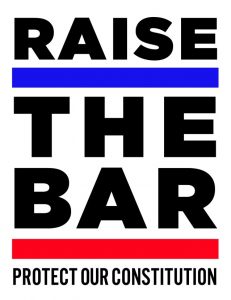 Whoa. In the 2016 election cycle, business groups spent $5.6 million on Amendment 71 to make it harder to amend the Colorado constitution through the ballot initiative process. The rationale was that it was too easy to amend our state’s constitution and special interests shouldn’t be able to change it so easily. Good point. Yesterday afternoon, a federal district judge found that a key provision in Amendment 71 violates the U.S. Constitution. Ouch.
Whoa. In the 2016 election cycle, business groups spent $5.6 million on Amendment 71 to make it harder to amend the Colorado constitution through the ballot initiative process. The rationale was that it was too easy to amend our state’s constitution and special interests shouldn’t be able to change it so easily. Good point. Yesterday afternoon, a federal district judge found that a key provision in Amendment 71 violates the U.S. Constitution. Ouch.
The provision the judge took issue with is the one that gave it the most teeth – gathering signatures from two percent of the voting population in all 35 state senate districts. That alone would make it tough for an organization to parachute into Colorado and collect the signatures necessary to get the initiative on the ballot. While the measure passed handily, a coalition of groups and individuals, including Coalition for Colorado Universal Health Care and ColoradoCareYes, challenged the law’s constitutionality under the idea that it violated “one man, one vote.” Here’s how the Denver Post described the issue:
“Their argument rested on the idea that, while Colorado’s 35 Senate districts were designed to be roughly equal in population, they don’t have the same numbers of registered voters. Senate District 23, for instance, had 51,723 more registered voters at the start of 2017 than District 21, according to the lawsuit — a gap of 60 percent. That, they argued, gives the typical District 21 voter more influence in the signature gathering process than a voter in the larger district.”
The state has until March 9 to prove that the amendment does not create this situation described above. The Secretary of State is weighing options, but said it would “defend the vote of the people.”

Seems to me if you follow the Judge’s ruling he dismisses our US constitution’s amendment process. How would the Judge rule if any amendment change had to be submitted by 2/3 thirds of Co Sen. Districts like the US Constitution demand in Article 5? We seem to have another Activist Judge trying to dictate new laws rather than interpreting them in this case.